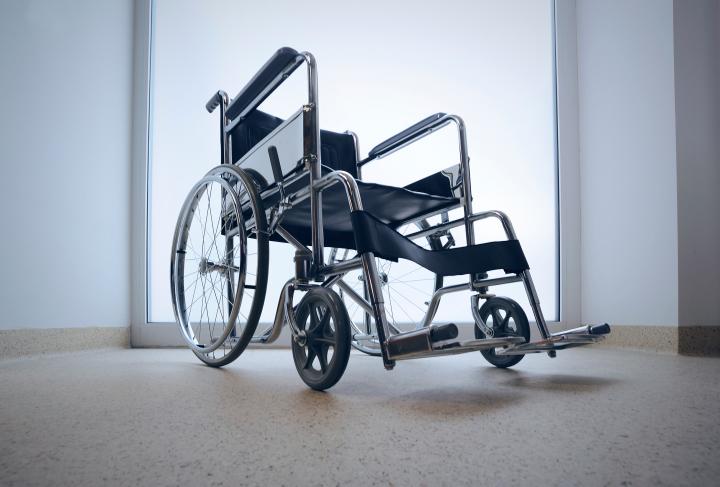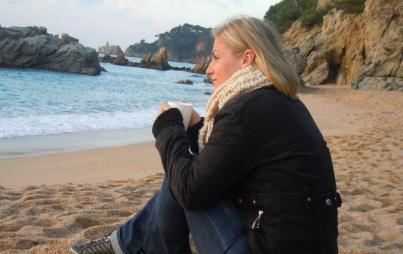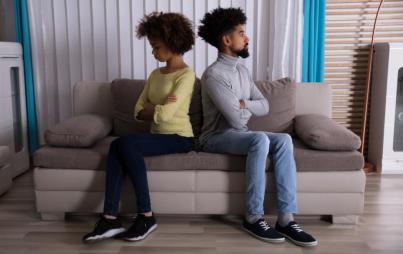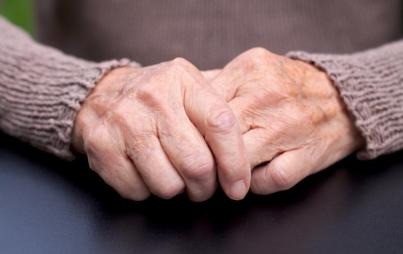
Credit: Thinkstock
My mom used to love Oscar season. Every year, she'd challenge herself to see all the nominated movies before the ceremony. I remember seeing The Pianist with her, and, once she had started walking with a cane, giving some major side-eye to a couple of not-visibly-impaired dudes in the handicapped seats next to us at Benjamin Button (true, they could have had one of many of invisible illnesses, but at the end of the movie, they got up right out of their seats and breezed to the door while my mom was struggling to get out of her chair). The lady behind us grumbled at me for taking too long to set up my mom's walker as we tried to exit Lincoln—we had to sit in a regular row because the theater was packed, and all the handicapped seating was taken, once again, by people I strongly suspect didn't need it.
I'm sorry to keep harping on this, dear readers, but for the purposes of context I must once again bring up that my mom died just a few months ago, after a long struggle with multiple sclerosis. While it was virtually undetectable for most of her adult life, she hit a sharp decline around 2010. So after having spent the last four years looking after her, I've kind of been looking forward to seeing all the Oscar noms (even the ones that look really treacly), because it's an escape and it reminds me of her. This Friday I had nothing to do, so I went over to The Theory of Everything, a film that's been getting a lot of awards buzz.
I like space. I like science. I don't really understand it (unless Commander Hadfield is explaining it to me), but I admire people who do. And Stephen Hawking knows science. The Theory of Everything explores his early years, before the publication of landmark tome A Brief History of Time, and details his personal life with his first wife, Jane.
Jane married Stephen shortly after his motor neuron disease diagnosis, where he was given only two years to live. As we all know, he ended up living a lot longer than that. Though she never expected to be, she ended up being his primary caretaker for the first two decades of his career. As his disease progressed, her responsibilities increased from simply making him comfortable to helping him eat, walk, and eventually speak. And as her clothes and haircuts change in the film to indicate the passage of time, you can see her start to shut down emotionally. She is constantly at the end of her rope, on edge, waiting for the worst to happen. She brings a friend over to help tend to him, but she knows she can’t use his free help forever—he isn’t any more trained than she is, and besides, the town is starting to gossip about this strapping new man sniffing around the Hawking house. She eventually hires a caretaker whom, it turns out, Stephen falls in love with.
And near the end of the film, the two—amicably—split. Stephen has seen the toll it has taken on her, and since they both want other things, they decide it’s best if they part ways.
To most audiences, she probably looked like another heartless ice-queen character who abandoned a sick man and couldn't see how good she really had it. But let me tell you: Everything she went through was entirely plausible.
There’s actually been a huge uptick in journalism on the realities of caregiving this year, from heartrending first-person essays to scathing investigative reports on nursing home mismanagement. It's been well-documented that our population is living longer, too. While health network commercials will point you directly to the upsides of this, the hush-hush downside is that most of us untrained, untalented lot can now expect to have to care for an adult family member. Nearly 30% of the adult population—the majority of them female—is already classified as an informal caregiver, and carrying out the caregiving influences their career, their social life and mental health in numerous negative ways. And it's only getting worse: Experts predict that by 2030, the 65 and over population will have doubled. As many reports have asserted recently, the caregivers themselves are increasingly in need of care.
However, most of what’s being written about has to do with caring for Alzheimer’s patients, a disease mostly associated with the old. What I dealt with—and what Jane deals with in the film—is a little bit different.
Jane and Stephen were young when they married—their early twenties. I was young when I was thrust into caring for my mom—23. And at first, I internally scowled at the film’s depiction of Jane. I thought, Here’s another depiction of a woman being pushed to the brink of sanity because she’s faced with hard work. Then I realized, Jesus, Jody, for once this has nothing to do with misogyny. This is hard for you to watch because you know that’s how it really is. As much as we don’t want to admit that we could be so angry at someone who can’t help what is happening to them, it does happen—it’s only human. The Theory of Everything was, as someone who's been there, an excellent preview of what lies ahead for most of us.
The reason for my mom's sharp decline was this: In May of 2010, she was taking my housebound grandmother out. This was her usual Saturday custom: She'd pick my grandma up in the late morning, take her out to do her grocery shopping, go to lunch, then drop her back off in the late afternoon. On this particular day, they had made a pit stop at my parents' house: MS messes with your bladder control, and my mom had to use the bathroom.
When she was done, she got back in the car and started to drive toward Walgreens. But when she turned onto the next street, her legs locked up, stuck on the gas. She hit the freeway divider under the overpass by our house. She survived. My grandmother didn't.
After two and a half months in the hospital and a nursing facility, she was "cleared" to go home (I use quotes because she was actually sent home because insurance cut her off). And so began the process of nursing her.
You read right: My dad and I, completely untrained in the nursing arts, were expected to take care of her. Insurance paid for about four sessions of "physical therapy"—not that the therapists weren’t great; my mom's problems just far outweighed the usual range of at-home healthcare needs—and that was it. We were on our own.
The accident had shattered her ribcage, and for the first month or so she was completely bedridden while her bones healed. When it wasn't the MS that was making life difficult for her, it was her diabetes, her actual physical injuries, or some unfortunate maelstrom of all three. Meals had to be prepared; medications retrieved and administered. Paperwork signed and delivered. Adult diapers procured at 4 in the morning.
No matter how loving the family—and we weren’t exactly the Brady Bunch—tensions will eventually boil over. You will do everything you can to help them, but you will, at some point in time, fail. You will panic when your loved one has a blood sugar episode and you don’t know if it’s a high or low, nor do you know how to operate the glucose meter so you can find out, and you will call everyone you know in the hopes that someone within ten minutes of the house can help. You will lose your patience when they, bedridden, ask you to find them the remote, and you walk into the room to see it sitting just an inch from their right hand. You will gently berate them when they insist on getting their dinner out of the fridge and end up falling, and then you will sit on the floor with them and cry because you can’t pick them up and your dad won’t be home from work for another hour. You will end up screaming at them about how tired you are of being stuck indoors, tending to their every need. You'll stay home and sulk because you are just too exhausted to go out on a Friday night. You will spend every waking moment with them or worrying about them. You will love the person, but you will lose some of yourself in the process—you have to. And it’s only natural to grieve for loss.
In The Theory of Everything, it’s hard for us to watch and easy for us to criticize because I think deep down, we all know that it wouldn’t take much for us to become the curt, terse, polite-but-surly person Jane is on screen. Statistics say we will all become this person eventually, and yet we just keep ignoring the reality that we will all, unless estranged from our families, have to put our lives on hold to care for an ailing adult. It will ruin you some days. Unless you possess a superhuman amount of resilience and resolve—I can personally guarantee it.
But you know what? That’s OK. I don’t say this to Ghost-of-Christmas-Future you. I say this so that when you, 20 years from now, are sitting in your car at 10 p.m. screaming and crying and smacking your hand on the inside of the door, you know that it’s OK. Remember that the person you’re caring for is human too. They understand when you get mad, and, if they’re not totally heartless, they will forgive. Stephen did.






